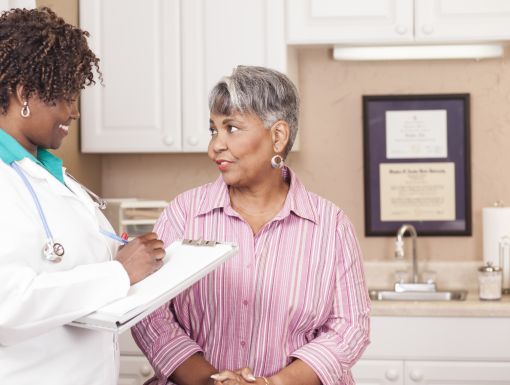
What Are the Symptoms for Diverticulitis?
One thing that is often discovered during a colonoscopy is diverticula, which means little pouches or pockets on the walls of your colon. Diverticula are not colon cancers. Having these pouches is a condition called diverticulosis.
These pouches or pockets occur when the inner layer of the digestive tract pushes through weak spots in the outer layer of the colon wall. Some people may have only several small pouches on the left side of the colon, while other people might have diverticulosis throughout their colon.
Diverticulosis is a common condition in the United States and affects half of all people over 60 years of age and nearly everyone by the age of 80. As you get older, the pouches in the digestive tract may become more prominent. Diverticulosis is unusual in people under the age of 40, and it’s also uncommon in certain parts of the world, such as Asia and Africa.
Because diverticulosis is uncommon in regions of the world where people eat a lot of fiber in the form of grains, fruits and vegetables, many doctors believe diverticulosis is caused at least in part by a diet low in fiber. If you don’t eat enough fiber, you may suffer from constipation, which increases pressure within your colon from straining during bowel movements. All of that straining and pressure over the years can lead to diverticulosis.
What is diverticulitis?
Most of the time, having those pouches on your colon walls does not cause major problems. But if the diverticula get infected and inflamed, it can lead to a condition called diverticulitis. Although the words are similar, diverticulitis is more serious than diverticulosis. Diverticular disease of the colon is an important cause of hospital admissions in the United States.
Who’s at risk?
As we’ve mentioned, the older you are, the more likely you are to have diverticulosis, as well as diverticulitis. Other risk factors for diverticulitis include:
- Smoking
- Obesity
- Lack of exercise
- Use of certain medications, including steroids, opiates and ibuprofen
- Genetics may play a role
What are the symptoms of diverticulitis?
Symptoms can include:
- Constant and often severe pain, usually on the left side of the abdomen, but sometimes the right
- Fever
- More frequent urination
- Painful urination
- Nausea and vomiting
- Bleeding from the rectum
What is the treatment for diverticulitis?
Other conditions or other illnesses can cause similar symptoms to diverticulitis, so a doctor will perform blood tests to help determine the cause of your symptoms. A colonoscopy, barium enema X-ray or computer tomography (CT) scan may also be used to form a diagnosis.
Treatment depends on how severe the case is. For less severe cases, consuming more dietary fiber and over-the-counter painkillers can help. Most patients with diverticulitis are treated with antibiotics rather than surgery.
Hospitalization may be required if the pain is too severe, if you are dehydrated, if you are in poor health or if you aren’t getting relief from home treatment after a couple of days.
If the case is severe enough, a patient might need surgery to remove the infected part of the colon and join the healthy parts of the colon together.
Don’t ignore symptoms
Don’t ignore pain, bleeding, fever, nausea, vomiting or any symptoms that concern you. Diverticulitis can cause serious complications, including:
- Peritonitis, when the infection spreads into the abdomen. This can be fatal and requires immediate treatment.
- Abscess, when a cavity fills with pus.
- Fistula, an abnormal tunnel that forms from the wall of the colon to the bladder or abdominal wall or other parts of the bowel. Surgery may be required.
- Intestinal obstruction, either a partial or total obstruction of the colon.
Lifestyle changes
In the United States, people tend to eat a lot of deep-fried food, red meat, full-fat dairy, refined grains and processed food. You can keep your colon healthier by avoiding these foods and embracing more fruits, vegetables and whole grains.
Make an appointment with gastroenterologist Melissa Spera, MD.

